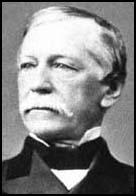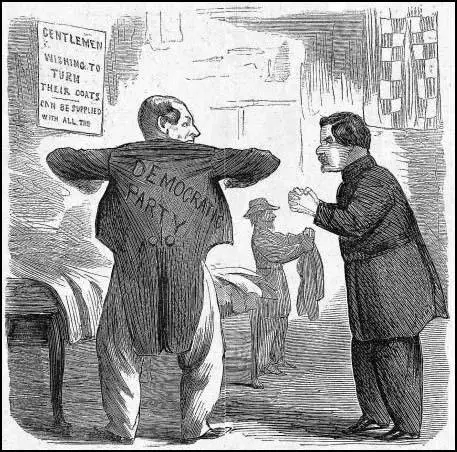Fernando Wood

Fernando Wood was born in Philadelphia, on 14th June, 1812. He moved to New York City where he became a successful merchant and real estate investor.
A member of the Democratic Partyand the Tammany Society, he was elected to Congress (1841-43) before becoming mayor of New York City in 1854. Wood helped establish Central Park but his administration was marked by widespread graft and crime. Defeated in 1859 he returned to power in 1861.
Opposed to the American Civil War, Wood suggested that New York City should also leave the Union. Wood made several speeches attacking President Abraham Lincoln and was blamed for causing the Draft Riots in the city. Wood also joined with Clement Vallandigham to form the Peace Democrats (Copperheads). Unlike Vallandigham, Wood was never charged with treason.
Wood also served in the House of Representatives (1863-65 and 1867-1881) where he was a staunch opponent of the Radical Republications.
Fernando Wood died at Hot Springs, Arkansas, on 14th February, 1881.

George McClellan during the 1864 presidential campaign (9th July, 1864)
Primary and Secondary Sources
(1) Fernando Wood, speech made in New York City on 6th January, 1861.
With the aggrieved brethren of the slave states we have friendly relations and a common sympathy. We have not participated in the warfare upon their constitutional rights or their domestic institutions. Our ships have penetrated to every clime, and so have New York capital, energy, and enterprise found their way to every state, and, indeed, to almost every county and town of the American Union. If we have derived sustenance from the Union, so have we in return disseminated blessings for the common benefit of all. Therefore, New York has a right to expect, and should endeavor to preserve, a continuance of uninterrupted intercourse with every section.
Much, no doubt, can be said in favor of the justice and policy of a separation. Why should not New York City, instead of supporting by her contributions in revenue two-thirds of the expenses of the United States become also equally independent? As a free city, with but nominal duty on imports, her local government could be supported without taxation upon her people. Thus we could live free from taxes and have cheap goods nearly duty free. In this she would have the whole and united support of the Southern states, as well as all the other states to whose interests and rights under the Constitution she has always been true.
